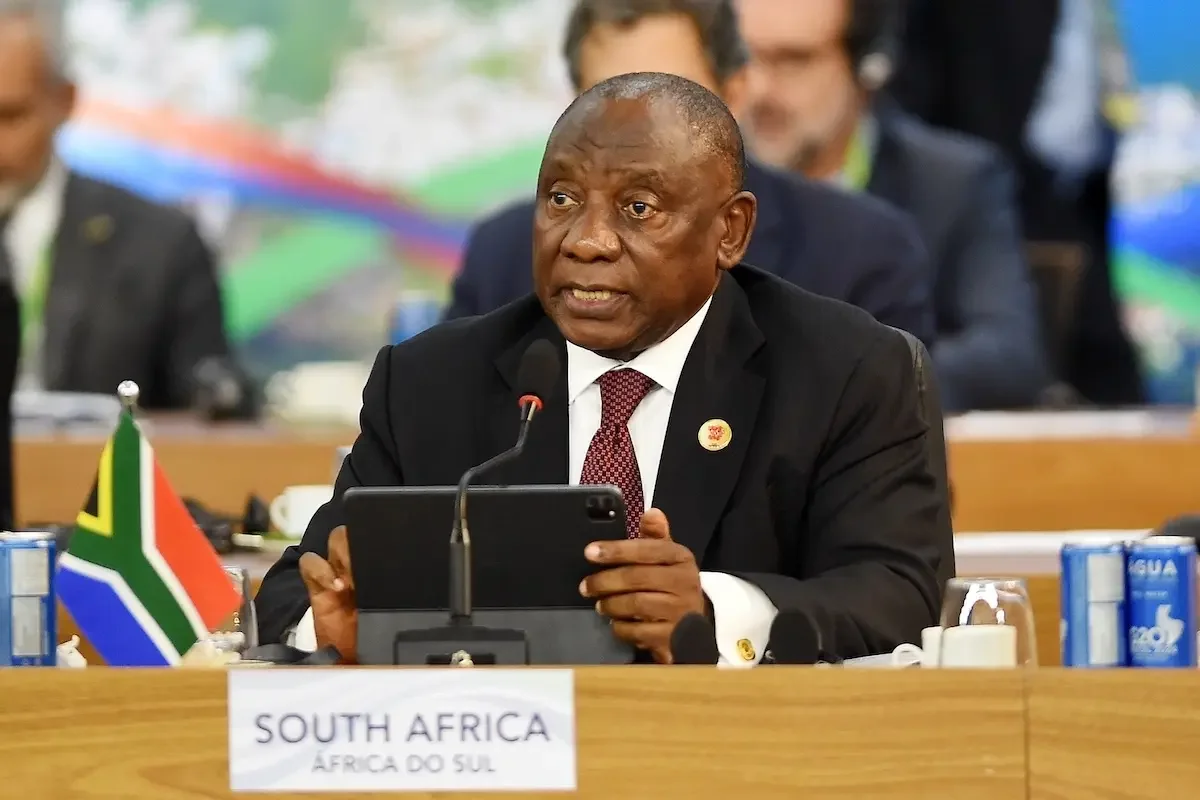In October 2025, as the global debt and development crisis deepens, civil society and global debt justice organizations have written to His Excellency President Cyril Ramaphosa, President of the Republic of South Africa and current President of the G20, to express grave concern over the worsening debt and development situation facing many countries in the Global South, particularly in Africa.
When South Africa assumed the presidency of the G20, there was optimism that a new chapter had begun. President Ramaphosa’s decision to make debt sustainability for low-income countries one of his four priorities was widely welcomed, as was the emphasis placed on this issue at the special side event Forging a Common Agenda to Achieve Debt Sustainability in Developing Countries held during the 4th International Conference on Financing for Development (FfD4) in Seville, Spain.
Civil society groups now urge that these commitments be translated into bold, concrete action. They see this moment as a pivotal opportunity to address one of the most pressing challenges of our time, the unsustainable debt burden that continues to suffocate developing economies and undermine progress in Africa and across the Global South.
As President Ramaphosa himself has acknowledged, developing countries face the highest borrowing costs in nearly two decades. Debt payments are crowding out essential social spending and draining domestic resources from development. African nations are charged higher interest rates than countries in other regions with comparable economic indicators, an unjust “African premium” that costs the continent an estimated US$74.5 billion annually in excess interest payments.
Today, 23 African countries are spending more on debt servicing than on healthcare or education. This same grim reality is mirrored in many parts of Latin America, the Caribbean, and Asia. The United Nations 2030 Agenda for Sustainable Development and the African Union’s Agenda 2063 remain out of reach unless the intertwined challenges of debt and development are addressed in a coherent, rights-based, and equitable manner.
Although some progress has been made under the G20’s Common Framework, the current system is failing. Debt restructuring processes are too slow, too shallow, and too unequal. The balance of responsibility between public and private creditors is unfair, and the global financial architecture continues to entrench inequality rather than dismantle it. The human cost, particularly for women, children, and marginalized groups, is unbearable.
While acknowledging South Africa’s commitment to making debt a G20 priority, civil society is concerned by the lack of tangible progress. The recent Finance Track Communiqué offered no meaningful advancement, suggesting that the African Expert Panel has struggled to move the conversation forward. As African leaders themselves have said, the Common Framework has not provided a pathway toward restoring debt sustainability, fueling skepticism about its effectiveness.
From across the Global South, advocates view South Africa’s presidency as a historic opportunity, one that must not be wasted before the G20 returns to northern leadership. They call on President Ramaphosa and his administration to take a stronger and more courageous stand on behalf of developing countries.
Civil society organizations urge South Africa to support and actively participate in the intergovernmental process at the United Nations toward recommendations for debt architecture reform, as agreed at the FfD4 Conference. This process should advance the establishment of a UN Framework Convention on Sovereign Debt, embedding reforms that center human rights and equity, prohibit austerity policies that undermine social services, hold private creditors accountable, and ensure transparent and fair debt restructuring under UN auspices.
They also call for radical reform of debt restructuring processes, based on lessons from the Common Framework, to deliver deeper and faster relief. This includes introducing a time-bound framework, suspending debt servicing for all borrowers undergoing restructuring, and establishing a legal mechanism for enforcement.
Further, advocates propose the creation of an African Credit Rating Agency and a Global Debt Registry that would publicly disclose details of external sovereign loans, bonds, and restructuring agreements. They also support the formation of a Borrowers’ Club, as agreed at FfD4, to foster cooperation among debtor nations, enhance transparency, and strengthen negotiation positions, providing a counterweight to creditor groups such as the Paris Club and the London Club.
Other recommendations include developing binding principles of responsible lending and borrowing, conducting debt sustainability analyses aligned with human rights and climate goals, and agreeing on the sale of IMF gold reserves to finance a global debt relief fund. Above all, debt relief must protect critical social spending on education, health, gender equality, and climate resilience.
These proposals align with South Africa’s foreign policy principles of promoting peace, security, democracy, and inclusive development, while also advancing the African Union’s call for the reform of the international financial architecture.
South Africa’s leadership on debt sustainability could catalyze the transformation of an unjust global financial system, addressing immediate crises while paving the way for structural change that empowers Africa and the developing world. However, time is running out. Without concrete results, South Africa risks failing to deliver meaningfully on one of its most important G20 commitments.
Debt justice is not charity. It is a matter of dignity, equality, and survival. The message from civil society is simple but urgent:
Act boldly. Stand with the South. Deliver debt justice now.

